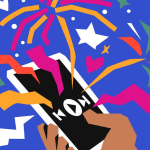It’s inevitable: conflicts emerge between the various players in any competitive sector. Music streaming is no exception. These conflicts have sometimes enabled platforms to develop themselves parallel or in opposition to their competitors. And over the years, as the various players have grown in stature, pitched battles have inevitably emerged. The war between Apple and Spotify is fascinating, highlighting two streaming visions.
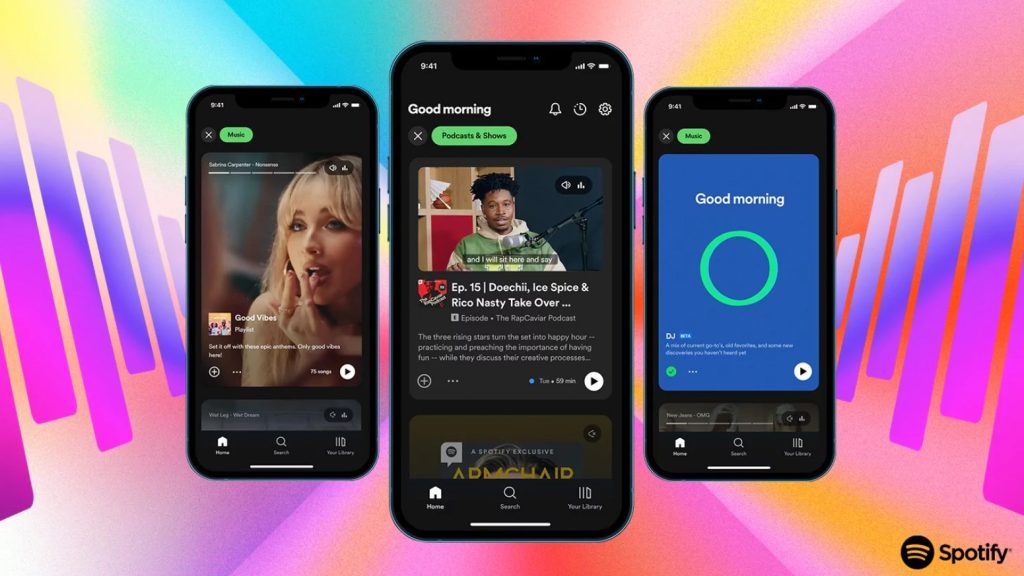
As you know, at Soundiiz, we’re passionate about music streaming. We’re convinced that it’s by delving into its rich history that we can understand the current context and thus give you some pointers on how to make the most of your favorite streaming services. That’s why we compare platforms or look back at some of their history. Today, in this new blog post, we look closely at the long years of opposition between Apple and Spotify.
We’ll tell you all about it!
When did the war between Apple and Spotify start?
When Spotify is available for download from the Apple Store, Apple is bound to take a dim view. Spotify is directly competing with iTunes, gaining ground in the streaming market. While the two companies are not yet in open conflict, observers sense that the situation is potentially explosive. iTunes is now the market leader by a wide margin.
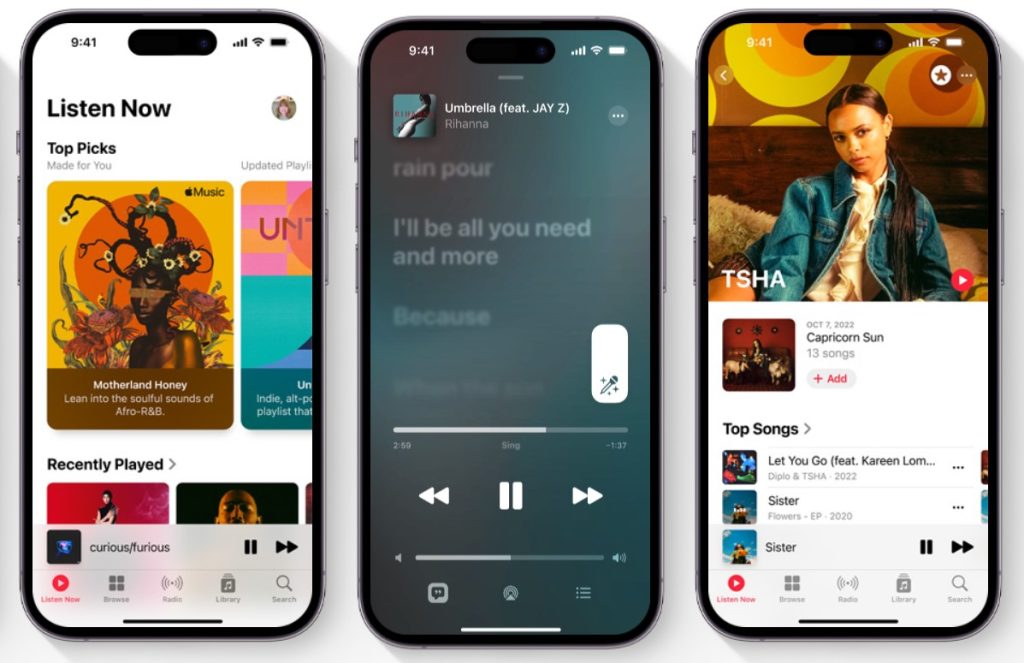
Spotify, via its Time To Play Fair platform, even devoted an entire article to the conflict with Apple, which you can read right here.
That’s how serious the Swedish company is about all this! The article is interesting, but remember that it comes from Spotify and could be biased in the company’s favor.
What starts as a competition issue will quickly take on unexpected proportions.
What are the reasons for the disagreement?
There are many. The first came around 2010 when Spotify claimed that Apple regularly and arbitrarily changed the rules of its App Store. Being present there then became opaque and complex. Over the years, Spotify will complain, for example, that Apple, after unveiling its Apple Watch, consciously prevented Spotify from developing an app that would work with this technology.
In 2015, Taylor Swift announced that it was unfair that her music was available on Spotify’s free version. She demands that the platform remove all her music and, at the same time, declares that her album 1989 will be available exclusively on Apple Music. It’s not a huge event, but it contributes to the climate of tension between the two competitors.
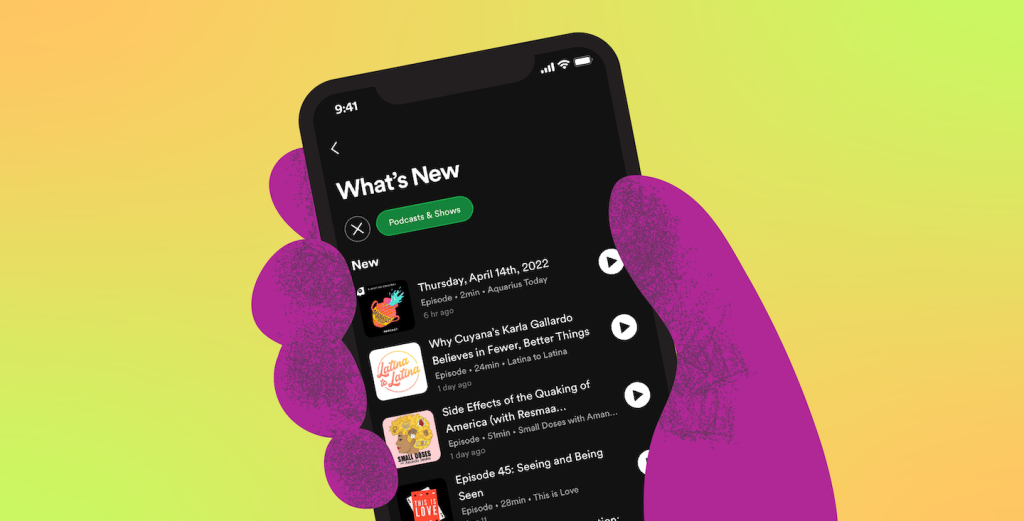
Similarly, a Bloomberg article accuses Spotify of penalizing artists who sign exclusive contracts with Apple Music. The Swedish company would have its algorithms give them less prominence, making their songs harder to find. According to Bloomberg, Spotify has sent warnings to some of these artists.
Spotify defends itself by claiming that none of this is true.
The Audiobooks war
But everything took a more “dramatic” turn in 2015. At that time, Apple applied a 30% tax – sometimes called the “Apple Tax” – on digital content purchases made on the App Store. This affected developers of apps external to Apple, such as Spotify. This is somewhat unfair, as developers like Spotify would have to increase their prices by 30% to absorb this tax, even though Apple-developed apps don’t have to pay this tax.
It is particularly penalizing concerning audiobook purchases if we take the case of Spotify. Spotify has been investing a lot of money. By rejecting Spotify’s proposed upgrades in the audiobook purchase sector, Apple is accused of putting the brakes on Spotify’s business.
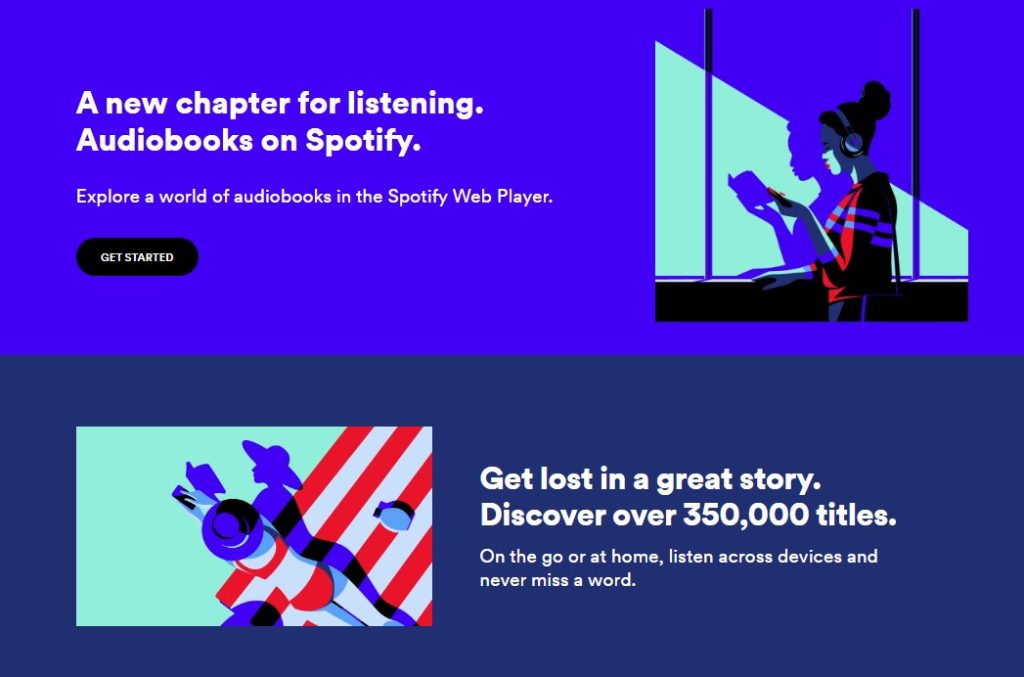
For its part, Apple accuses Spotify of attempting illegal practices to avoid paying the 30% tax and refuses to give ground. As reported by the imore website, Spotify had developed the following technique to get around this. An email was sent when users wanted to buy an audiobook on Spotify using their iPhones. Purchasing an audiobook outside the App Store was possible by clicking on the link in the email. Apple didn’t like the idea and blocked this functionality. As a result, when a customer wanted to buy an audiobook via the App Store, the following message appeared: “You can’t buy audiobooks in the app. We know it’s not ideal.”
In an interview with CNN, Harry Clarke, Spotify’s chief competition lawyer, says: “We are talking about this because it reflects Apple’s anti-competitive practices across the board.”
The conflict will only escalate from here.
The courts get involved
In 2019, Spotify filed an antitrust complaint against Apple with the European Commission.
The same year, the US Justice Department drafts a potential antitrust complaint against Apple. Spotify also believes that Apple places barriers in how developers communicate with iOS users. In a press release, Spotify claims that Apple gives itself an “unfair advantage at every turn.” Spotify also complains that the Siri app, created by Apple, is challenging to use with a Spotify app.
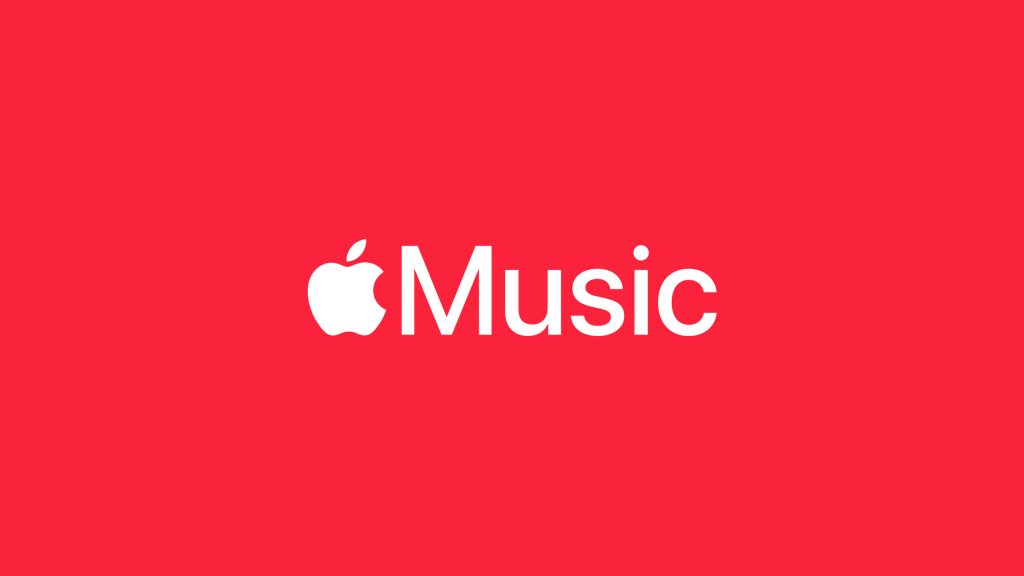
While it is rare for Apple to communicate publicly on this type of case, the company has published a statement on its website.
It reads: “After using the App Store for years to dramatically grow their business, Spotify seeks to keep all the benefits of the App Store ecosystem – including the substantial revenue they draw from its customers – without making any contributions to that marketplace. At the same time, they distribute the music you love while making ever-smaller contributions to the artists, musicians, and songwriters who create it – even going so far as to take these creators to court.”
Apple takes the opportunity to debunk Spotify’s accusations about the accessibility of their tools point by point. We invite you to read the press release carefully to fully grasp Apple’s point of view and form your own opinion while also consulting the Time To Play Fair platform mentioned above, created by Spotify.
The war between Apple and Spotify: What now?
In September 2023, on its Time To Play Fair platform, where it is also possible to find an article called “Five Fast Facts about Apple’s anti-competitive behavior “, Spotify unveiled the following message, delivered by Olivia Regnier, its Head of European Government Affairs:
“For too long, Apple has used its monopoly on the app market to drive up prices, harm its competitors, and restrict choice for European consumers. Not surprisingly, the European Commission has appointed Apple as gatekeeper – Apple will now have to end its blatant anti-competitive practices in the EU, stop forcing developers to pay unfair and discriminatory fees in the App Store, and allow developers to communicate directly with customers about new contracts and offers. Apple will try to circumvent its compliance obligations as it has done before. Still, EU consumers and developers are counting on the Commission to effectively enforce the DMA, protect European consumers, and stimulate technological innovation for European businesses.”
Four years after taking the case to the European Commission, it seems like Spotify won its case. It would be a turning point in the war between Apple and Spotify.
What role does Soundiiz play in the war between Apple and Spotify?
Soundiiz has no role to play in the conflict itself. We’ve never taken a stand for either side. Nor do we favor Apple or Spotify. Our services are transparent and not tied to any particular platform. We treat each streaming service in the same way, with a single aim: to enable you to get the most out of them and, above all, to transfer your data quickly from one to the other. That’s where we come in.

Some of Apple’s or Spotify’s evolutions won’t suit you, and you’ll want to stop your subscription and see if the grass is greener elsewhere. You’ll inevitably ask yourself, will I lose all my data if I switch from Apple to Spotify or from Spotify to Apple? The answer is a resounding no.
With Soundiiz, thanks to our Transfer function, you can find all your data on the platform you choose to use. It’s as simple as that, and to make the process even easier, we’ve explained it all right here.

You might also be worried about losing access to your Spotify or Apple playlists on your new account. But with our Sync function, you’ll be able to retrieve the playlists you’ve become accustomed to listening to and find them automatically, without any effort, on your new platform.
Another exciting feature is the ability to download all the data you want in CSV format so that you can store, manage, and/or share it with friends and family. It can be fascinating in the case of a switch from Apple to Spotify or Spotify to Apple. You can import the CSV file containing your data whenever you like.

With Soundiiz, you don’t have to worry about the time-consuming procedures you’d have to go through when switching streaming platforms.
To test our services, click here!


